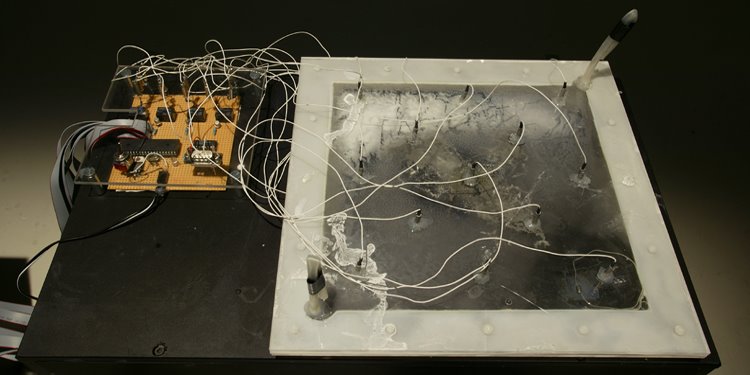Extrainsatt föreläsning - Mejan Labs
Imorgon onsdag kommer Paula Gaetano (Argentina), Paul Granjon (Frankrike)
och Andy Gracie (Storbritannien) som deltar i utställningen Frankenstein's
Monster att berätta om sina arbeten.
Tid: 31 oktober kl 18.00
Plats: Kungliga Konsthögskolans nya lokaler på Jakobsgatan 27C, våning 4
(IASPIS gamla lokaler i akademibyggnaden).
Vernissage på utställningen Frankenstein's Monster på Mejan Labs,
Akademigränd 3, torsdagen 1 november 17-20.00.
Se mer på www.mejanlabs.se
-----------------------------------------------
From Sara Ljungblad (an ex-colleague of mine)
Welcome to a seminar on my thesis draft "Experience centred Innovation" on the 5th of November, 13.00 at DSV in KIsta, Stockholm. Professor Jonas Löwgren will act as "opponent". I will start the seminar with a brief introduction (20 min), before Jonas Löwgren discusses the draft. After this, everyone will have a chance to provide helpful comments.
Abstract:
How can experiences be used as a resource for innovation in HCI (Human Computer Interaction)? This thesis presents the design philosophy "Experience Centred Innovation" which attempts to capture qualities of experiences and transfer these into innovative designs and forms of interaction for digital artefacts. Innovation is approached in the design process by matching "the design material" with qualities of experiences, studied in a human practice. The practice is referred to as a marginal practice, and is chosen to be relevant for the intended design outcome instead of representing potential users. This is different from a user-centred design process within HCI that focus on intended users as a basis for design. The research is design driven, and builds on several empirical design cases. Experience Centred Innovation contributes with (1) the concept or transferable qualities as a resource for innovation (2) novel design outcomes, and (3) transfer scenarios - design method for capturing and transferring qualities of experiences.
The thesis consist of several articles held together by an introduction (kappa). The "kappa" and six papers are found here:
http://www.viktoria.se/~saral/kappa.html
And...
If you want to come, but don't want to read the whole thing... I would recommend reading the Kappa "Experience Centred Innovation" and Chapter 11 that describes the design method, or chapter 8 that describes how the Lomographic practice informed context photography.
-----------------------------------------------
17-19 December 2007: Emergent Objects: Performing Design
University of Leeds
Call for participants
Emergent Objects: Performing Design will comprise performative
events/installations, workshops and presentations and a
colloquium with academic and practitioner experts in the fields
of interaction design, experience design, product design,
fashion and clothing, robotics, digital and media art,
engineering, architecture and computing.
http://www.emergentobjects.co.uk/
-----------------------------------------------
Call for Abstracts for a Special Issue of Children, Youth and
Environments
Children in Technological Environments: Interaction,
Development, and Design
Children are coming of age in increasingly sophisticated and
pervasive technological environments. They're immersed, for
example, in video gaming, web browsing, and instant messaging.
Many have cell phones and laptop computers. Their avatars
represent them in virtual spaces. They care for digital pets in
a virtual world, and play with embodied robot pets, which move
autonomously through the physical world. These technological
environments have come a long way, fast. It's not just TV
anymore. On the immediate horizon are responsive computational
devices that mimic a social other, such as navigational devices
in cars that speak with a human voice. "Smart homes" of the
future will have interfaces that speak to us and respond to our
actions and conversation. Humanoid robots may well become
nannies for our children, and their tutors and playmates, and -
if we're not careful - their slaves. It seems likely, too, that
inequities will persist in children's access to technology.
http://www.colorado.edu/journals/cye/
-----------------------------------------------
